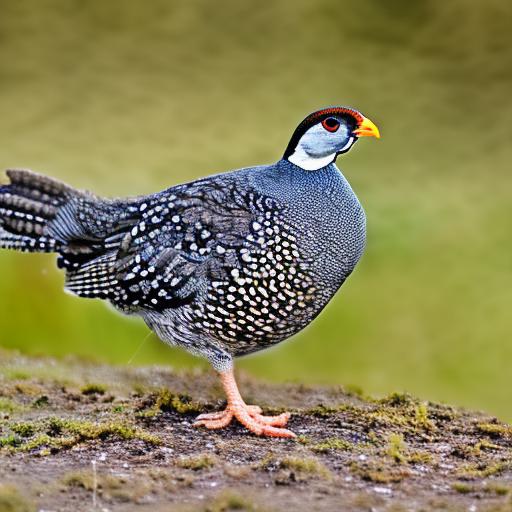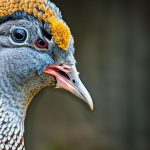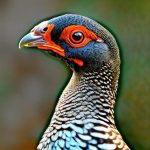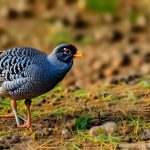Summer is a great time to keep guinea fowl on your farm or homestead. These unique birds are known for their insect-eating abilities, making them a valuable addition to any property during the warmer months. In addition to their pest control benefits, guinea fowl are also entertaining to watch and can even provide a source of meat and eggs for your family. In this article, we will explore the benefits of keeping guinea fowl in the summer, as well as the housing, feeding, health considerations, and predator management strategies that are important for successful guinea fowl keeping during the warmer months.
Key Takeaways
- Summer is a great time to keep guinea fowl due to their ability to control pests and their low maintenance requirements.
- Keeping guinea fowl in the summer can help control insect populations and reduce the need for chemical pest control.
- Providing adequate shelter and shade is essential for keeping guinea fowl comfortable and safe during the hot summer months.
- A balanced diet of grains, greens, and insects is important for the health and nutrition of summer guinea fowl.
- Regular health checks, access to clean water, and protection from predators are crucial for ensuring the well-being of summer guinea fowl.
Benefits of Keeping Guinea Fowl in the Summer
There are numerous benefits to keeping guinea fowl on your property during the summer months. One of the most significant advantages is their natural pest control abilities. Guinea fowl are voracious insect eaters and can help to keep populations of flies, ticks, and other pests in check. This can be especially beneficial in agricultural settings where pest control is a constant concern. Additionally, guinea fowl are excellent at foraging for their own food, which can help reduce feed costs during the summer when insects and other natural food sources are abundant. Furthermore, guinea fowl are relatively low maintenance birds, making them a great choice for those who want to add poultry to their property without the intensive care requirements of chickens or ducks.
Housing and Shelter for Summer Guinea Fowl
When it comes to housing and shelter for summer guinea fowl, there are a few key considerations to keep in mind. First and foremost, it’s important to provide a secure coop or shelter for your birds to roost in at night. This will help protect them from predators and ensure that they have a safe place to rest. Additionally, providing access to shade during the hottest parts of the day is essential for keeping guinea fowl comfortable in the summer heat. This can be achieved through natural shade from trees or by providing shelters or covered areas within their enclosure. It’s also important to ensure that their living space is well-ventilated to prevent overheating, as guinea fowl are particularly sensitive to high temperatures.
In addition to shelter, it’s important to provide access to fresh water at all times, especially during the summer months when dehydration is a concern. Consider providing multiple water sources throughout their enclosure to ensure that all birds have access to water when they need it. Finally, it’s important to regularly clean and maintain their living space to prevent the buildup of waste and reduce the risk of disease. By providing a clean, secure, and comfortable living environment, you can help ensure that your guinea fowl thrive during the summer months.
Feeding and Nutrition for Summer Guinea Fowl
Feeding and nutrition are important considerations for summer guinea fowl, as their dietary needs can change with the seasons. During the warmer months, guinea fowl have access to a wide variety of natural food sources, including insects, seeds, and plants. However, it’s still important to provide a balanced diet to ensure that they are getting all of the nutrients they need to stay healthy and active. In addition to foraging for their own food, you can supplement their diet with a high-quality poultry feed that is specifically formulated for guinea fowl. Look for feeds that contain a balance of protein, vitamins, and minerals to support their overall health and well-being.
In addition to commercial feed, you can also provide treats and supplements to help keep your guinea fowl healthy and happy during the summer months. Fresh fruits and vegetables, mealworms, and other protein-rich treats can be offered as occasional snacks to supplement their diet. Additionally, providing access to grit or oyster shell can help support their digestive health and ensure that they are able to properly process their food. By providing a balanced diet that meets their nutritional needs, you can help ensure that your guinea fowl stay healthy and active throughout the summer.
Health and Wellness Considerations for Summer Guinea Fowl
Maintaining the health and wellness of your summer guinea fowl is essential for their overall well-being. During the warmer months, it’s important to monitor your birds for signs of heat stress or dehydration. Providing access to shade and fresh water is essential for helping them stay cool and hydrated during hot weather. Additionally, regular health checks can help you identify any potential issues early on and take appropriate action to address them.
In addition to monitoring their physical health, it’s also important to consider their mental well-being. Guinea fowl are social birds that thrive in a flock environment, so it’s important to provide opportunities for social interaction and mental stimulation. Providing enrichment activities such as dust baths, perches, and toys can help keep your guinea fowl engaged and content during the summer months. By paying attention to both their physical and mental health needs, you can help ensure that your guinea fowl stay happy and healthy throughout the summer.
Managing Predators and Pests in the Summer
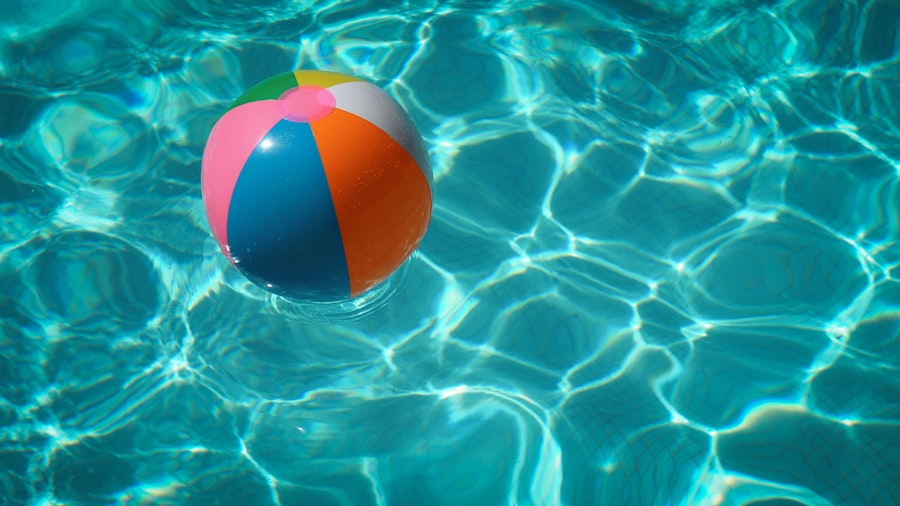
Predator management is an important consideration for summer guinea fowl keeping, as these birds can be vulnerable to attacks from predators such as foxes, raccoons, and birds of prey. To protect your guinea fowl from predators, it’s important to provide a secure coop or shelter where they can roost at night. This will help keep them safe from nocturnal predators that may pose a threat while they are sleeping.
In addition to securing their living space, it’s also important to be proactive about managing potential predators in your area. This may involve installing fencing or other barriers to keep predators out of their enclosure, as well as using deterrents such as motion-activated lights or sound devices to discourage predators from approaching. Regularly inspecting their living space for signs of potential threats and taking steps to address them can help reduce the risk of predator attacks and keep your guinea fowl safe during the summer months.
In addition to predators, pests such as mites and ticks can also pose a threat to your guinea fowl during the summer months. Regularly inspecting your birds for signs of pests and taking appropriate action to address any infestations is essential for keeping them healthy and comfortable. Providing dust baths and other natural pest control methods can also help reduce the risk of pest infestations and keep your guinea fowl thriving throughout the summer.
Enjoying Your Summer with Guinea Fowl
Keeping guinea fowl on your property during the summer months can be a rewarding experience that offers numerous benefits for pest control, entertainment, and potential food production. By providing appropriate housing, feeding, health considerations, and predator management strategies, you can help ensure that your guinea fowl thrive during the warmer months. Whether you’re a seasoned poultry keeper or new to raising birds, summer guinea fowl keeping offers a unique opportunity to enjoy these fascinating birds while also reaping the practical benefits they offer. With proper care and attention, you can enjoy a successful summer with your guinea fowl and appreciate all that they bring to your property.
If you’re considering keeping guinea fowl in the summer, you may also be interested in learning about what vegetables quails eat. Poultry Wizard has a helpful article on this topic, which can provide valuable insights into the dietary needs of quails. Check out the article here to discover more about providing a balanced and nutritious diet for your quails. For more poultry-related tips and information, visit Poultry Wizard.
FAQs
What are guinea fowl?
Guinea fowl are a type of bird native to Africa. They are known for their distinctive spotted feathers and loud, chattering calls. They are often kept for their pest control abilities and for their flavorful meat.
Why keep guinea fowl in the summer?
Guinea fowl are well-suited to warm weather and thrive in the summer months. They are able to forage for insects and other pests, which are more abundant in the summer, making them an effective natural pest control option for gardens and farms.
What do guinea fowl eat in the summer?
In the summer, guinea fowl have access to a wide variety of insects, seeds, and plants to forage for. They are omnivorous and will eat a diverse diet including grasshoppers, ticks, and other pests, as well as seeds, berries, and greens.
How do you care for guinea fowl in the summer?
In the summer, it is important to provide guinea fowl with access to shade, fresh water, and a secure coop or shelter to protect them from predators. Additionally, ensuring they have access to a varied diet and monitoring for signs of heat stress are important aspects of caring for guinea fowl in the summer.
Can guinea fowl be kept with other poultry in the summer?
Guinea fowl can be kept with other poultry such as chickens and ducks, but it is important to introduce them carefully and monitor their interactions. Guinea fowl can be more aggressive and may have different dietary and housing needs compared to other poultry.
Meet Walter, the feathered-friend fanatic of Florida! Nestled in the sunshine state, Walter struts through life with his feathered companions, clucking his way to happiness. With a coop that’s fancier than a five-star hotel, he’s the Don Juan of the chicken world. When he’s not teaching his hens to do the cha-cha, you’ll find him in a heated debate with his prized rooster, Sir Clucks-a-Lot. Walter’s poultry passion is no yolk; he’s the sunny-side-up guy you never knew you needed in your flock of friends!

